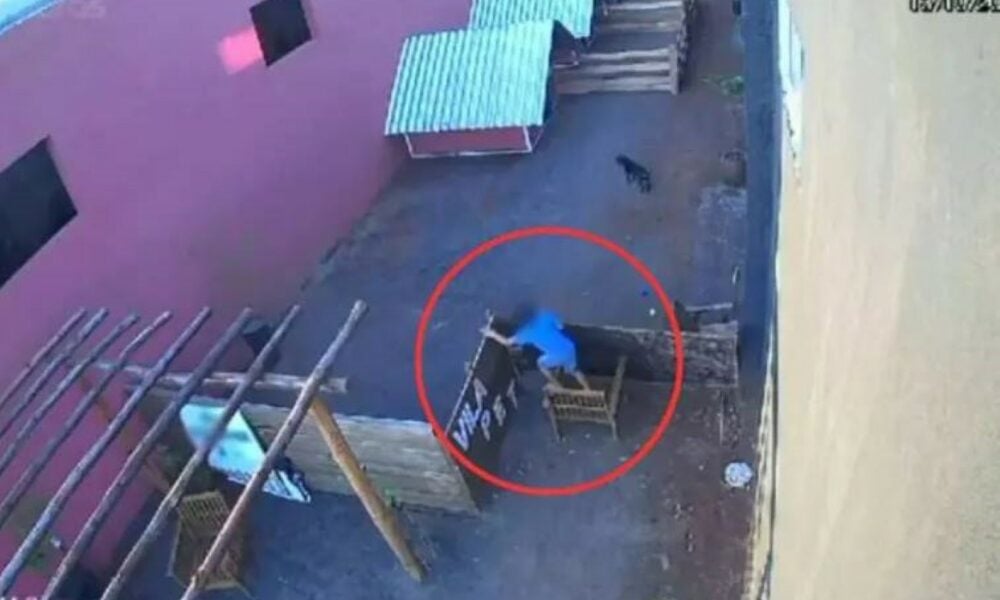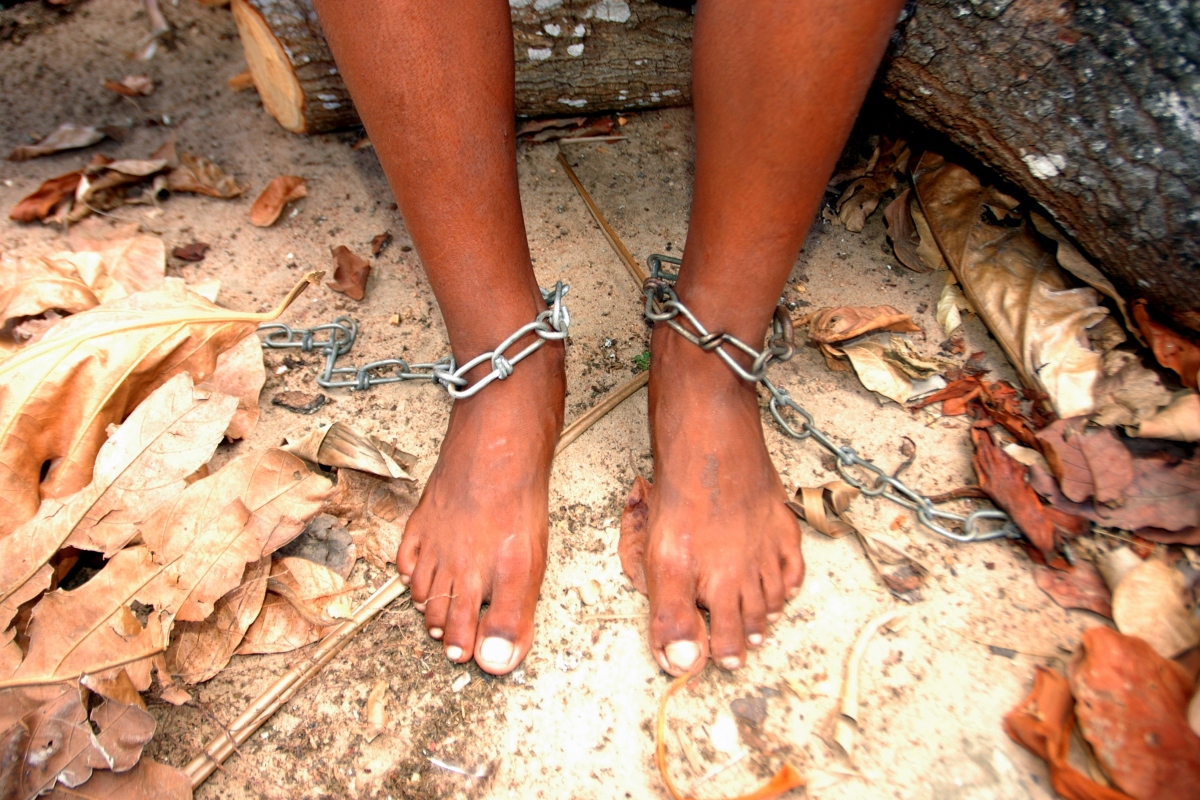9-year-old boy invades veterinary hospital and kills 23 animals in Paraná, shocking the population
In the town of Nova Fátima, in northern Paraná, a shocking case involving a 9-year-old child has caused great commotion and outrage among the population. On the night of October 13, 2024, the boy broke into a veterinary hospital and brutally killed 23 small animals in a premeditated act. The case was recorded by security cameras and quickly became one of the most disturbing events ever reported in the region. The attack took place in a recently inaugurated petting zoo within the veterinary hospital, which had been opened the day before as part of Children’s Day celebrations. Footage shows the child acting coldly and methodically while attacking the animals, showing no signs of remorse.
The invasion occurred around 7:00 PM when the child climbed over the wall of the veterinary hospital located on Avenida Nicanor Ferreira de Melo, a residential area known for its tranquility. The boy was accompanied by a dog, which remained by his side throughout the incident but did not directly participate in the attacks. The petting zoo housed various animals such as rabbits, ducks, and other small creatures, all of which fell victim to the child’s brutality.
The following morning, hospital staff found the mutilated bodies and immediately called the Military Police. The veterinarian in charge of the facility, Lúcio Barreto, described the scene as a horror scenario and expressed his indignation upon witnessing the tragedy caused by a child. After analyzing the security camera footage, authorities identified the boy and began investigations to understand the motivations behind the act.
The Child’s Behavior Raises Concerns About Mental Disorders
Authorities reported that the child involved did not have a significant history of aggression at school or home. However, residents indicated that he had previously displayed troubling behaviors, including mistreatment of small animals. The fact that such an extreme act was committed by a child without a history of systematic violence raises questions about possible undiagnosed mental or emotional disorders.
Child behavior experts suggest that episodes of cruelty to animals in childhood may indicate severe psychological disorders, including conduct disorder or deep-seated trauma. The Public Prosecutor’s Office and the Child Protection Council were called to assess the minor’s situation and determine what measures should be taken to monitor his development and prevent future violent behavior.
Impact on the Community and Residents’ Outrage
The small town of Nova Fátima, with just over 3,000 inhabitants, was left in shock by the brutality of the event. The veterinary hospital was a well-known establishment in the community, and the newly opened petting zoo represented a space for leisure and learning for local children. The outcry was so strong that protests and demonstrations began to be organized in the town, calling for greater protection for animals and changes in laws that govern penalties for cases of animal cruelty, even when committed by minors.
Local residents expressed feelings of anger and disbelief over the crime. Some voiced concern for the child’s future, while others emphasized the need for such acts to be punished, regardless of the aggressor’s age. The discussion about current legislation and the lack of punishment for minors in extreme cases like this also gained traction on social media.
Brazilian Legislation on Crimes Committed by Minors
In Brazil, children under 12 years old are considered legally irresponsible for their actions and cannot be criminally prosecuted, as determined by the Statute of the Child and Adolescent (ECA). However, socio-educational measures may be applied, including psychological counseling and intervention by the Child Protection Council. This case has reignited debates about possible changes to legislation, particularly concerning acts of animal cruelty committed by minors.
The Brazilian Penal Code provides penalties for mistreatment of animals, which can result in up to five years in prison under aggravating circumstances. However, when the crime is committed by a child, the legal focus shifts to psychosocial support rather than traditional punishment. This raises a dilemma about how to handle extreme cases like the one in Nova Fátima.
Similar Cases and the Impact on Animal Protection
Violence against animals by minors is not an isolated phenomenon and has become more frequent in recent years. In 2023, a 12-year-old teenager in Minas Gerais was caught killing cats in his neighborhood. In another case recorded in São Paulo, a group of young people broke into a shelter and killed several dogs and cats that were under veterinary care. These episodes highlight the need for greater oversight and educational programs to raise awareness among children and adolescents about animal rights.
The increase in cases of animal abuse reinforces the need for awareness campaigns and stricter penalties for those who commit such crimes. Animal protection organizations emphasize the importance of a more efficient system for reporting and investigating cases to prevent cruelty from going unpunished.
Chronology of Events
- October 12, 2024: Inauguration of the petting zoo at the veterinary hospital as part of Children’s Day celebrations.
- October 13, 2024 (Night): A 9-year-old child invades the veterinary hospital and kills 23 animals.
- October 14, 2024 (Morning): Veterinary hospital staff discover the dead animals and call the Military Police.
- October 14, 2024 (Afternoon): Security camera footage confirms the child’s identity.
- October 15, 2024, Onward: The case gains national attention and sparks debates on animal cruelty and children’s mental health.
Relevant Data and Statistics
- 23 animals killed, including rabbits, ducks, and small domestic animals.
- 40-minute attack, as recorded by security cameras.
- 3,000 inhabitants in Nova Fátima, where the case occurred.
- 30% increase in cases of animal abuse in Brazil over the past five years.
- Up to 5 years in prison is the penalty for cases of animal cruelty under Brazilian law.
Preventive Measures and Recommendations to Avoid Similar Cases
- Psychological support: Identifying and treating behavioral disorders in children at an early stage.
- Educational programs: Incorporating animal protection and empathy topics into school curricula.
- Stronger security measures for veterinary hospitals and shelters: Installation of surveillance cameras, alarms, and more effective monitoring systems.
- Tougher legislation: Evaluating potential changes to laws to address cases of animal cruelty committed by minors.
Discussion on the Psychological and Social Impact of Such Cases
Violence against animals in childhood can be linked to violent behavior patterns in adulthood. Studies show that children who exhibit cruelty to animals without remorse may develop conduct disorders that can worsen over time. The lack of preventive actions and adequate psychological support can contribute to the recurrence of aggressive behavior.
Society must discuss effective intervention methods to address children exhibiting violent behavior and ensure that animal protection laws are enforced rigorously. The impact of this case in Nova Fátima demonstrates a growing concern about animal cruelty and the need to provide proper support to prevent future tragic incidents.

In the town of Nova Fátima, in northern Paraná, a shocking case involving a 9-year-old child has caused great commotion and outrage among the population. On the night of October 13, 2024, the boy broke into a veterinary hospital and brutally killed 23 small animals in a premeditated act. The case was recorded by security cameras and quickly became one of the most disturbing events ever reported in the region. The attack took place in a recently inaugurated petting zoo within the veterinary hospital, which had been opened the day before as part of Children’s Day celebrations. Footage shows the child acting coldly and methodically while attacking the animals, showing no signs of remorse.
The invasion occurred around 7:00 PM when the child climbed over the wall of the veterinary hospital located on Avenida Nicanor Ferreira de Melo, a residential area known for its tranquility. The boy was accompanied by a dog, which remained by his side throughout the incident but did not directly participate in the attacks. The petting zoo housed various animals such as rabbits, ducks, and other small creatures, all of which fell victim to the child’s brutality.
The following morning, hospital staff found the mutilated bodies and immediately called the Military Police. The veterinarian in charge of the facility, Lúcio Barreto, described the scene as a horror scenario and expressed his indignation upon witnessing the tragedy caused by a child. After analyzing the security camera footage, authorities identified the boy and began investigations to understand the motivations behind the act.
The Child’s Behavior Raises Concerns About Mental Disorders
Authorities reported that the child involved did not have a significant history of aggression at school or home. However, residents indicated that he had previously displayed troubling behaviors, including mistreatment of small animals. The fact that such an extreme act was committed by a child without a history of systematic violence raises questions about possible undiagnosed mental or emotional disorders.
Child behavior experts suggest that episodes of cruelty to animals in childhood may indicate severe psychological disorders, including conduct disorder or deep-seated trauma. The Public Prosecutor’s Office and the Child Protection Council were called to assess the minor’s situation and determine what measures should be taken to monitor his development and prevent future violent behavior.
Impact on the Community and Residents’ Outrage
The small town of Nova Fátima, with just over 3,000 inhabitants, was left in shock by the brutality of the event. The veterinary hospital was a well-known establishment in the community, and the newly opened petting zoo represented a space for leisure and learning for local children. The outcry was so strong that protests and demonstrations began to be organized in the town, calling for greater protection for animals and changes in laws that govern penalties for cases of animal cruelty, even when committed by minors.
Local residents expressed feelings of anger and disbelief over the crime. Some voiced concern for the child’s future, while others emphasized the need for such acts to be punished, regardless of the aggressor’s age. The discussion about current legislation and the lack of punishment for minors in extreme cases like this also gained traction on social media.
Brazilian Legislation on Crimes Committed by Minors
In Brazil, children under 12 years old are considered legally irresponsible for their actions and cannot be criminally prosecuted, as determined by the Statute of the Child and Adolescent (ECA). However, socio-educational measures may be applied, including psychological counseling and intervention by the Child Protection Council. This case has reignited debates about possible changes to legislation, particularly concerning acts of animal cruelty committed by minors.
The Brazilian Penal Code provides penalties for mistreatment of animals, which can result in up to five years in prison under aggravating circumstances. However, when the crime is committed by a child, the legal focus shifts to psychosocial support rather than traditional punishment. This raises a dilemma about how to handle extreme cases like the one in Nova Fátima.
Similar Cases and the Impact on Animal Protection
Violence against animals by minors is not an isolated phenomenon and has become more frequent in recent years. In 2023, a 12-year-old teenager in Minas Gerais was caught killing cats in his neighborhood. In another case recorded in São Paulo, a group of young people broke into a shelter and killed several dogs and cats that were under veterinary care. These episodes highlight the need for greater oversight and educational programs to raise awareness among children and adolescents about animal rights.
The increase in cases of animal abuse reinforces the need for awareness campaigns and stricter penalties for those who commit such crimes. Animal protection organizations emphasize the importance of a more efficient system for reporting and investigating cases to prevent cruelty from going unpunished.
Chronology of Events
- October 12, 2024: Inauguration of the petting zoo at the veterinary hospital as part of Children’s Day celebrations.
- October 13, 2024 (Night): A 9-year-old child invades the veterinary hospital and kills 23 animals.
- October 14, 2024 (Morning): Veterinary hospital staff discover the dead animals and call the Military Police.
- October 14, 2024 (Afternoon): Security camera footage confirms the child’s identity.
- October 15, 2024, Onward: The case gains national attention and sparks debates on animal cruelty and children’s mental health.
Relevant Data and Statistics
- 23 animals killed, including rabbits, ducks, and small domestic animals.
- 40-minute attack, as recorded by security cameras.
- 3,000 inhabitants in Nova Fátima, where the case occurred.
- 30% increase in cases of animal abuse in Brazil over the past five years.
- Up to 5 years in prison is the penalty for cases of animal cruelty under Brazilian law.
Preventive Measures and Recommendations to Avoid Similar Cases
- Psychological support: Identifying and treating behavioral disorders in children at an early stage.
- Educational programs: Incorporating animal protection and empathy topics into school curricula.
- Stronger security measures for veterinary hospitals and shelters: Installation of surveillance cameras, alarms, and more effective monitoring systems.
- Tougher legislation: Evaluating potential changes to laws to address cases of animal cruelty committed by minors.
Discussion on the Psychological and Social Impact of Such Cases
Violence against animals in childhood can be linked to violent behavior patterns in adulthood. Studies show that children who exhibit cruelty to animals without remorse may develop conduct disorders that can worsen over time. The lack of preventive actions and adequate psychological support can contribute to the recurrence of aggressive behavior.
Society must discuss effective intervention methods to address children exhibiting violent behavior and ensure that animal protection laws are enforced rigorously. The impact of this case in Nova Fátima demonstrates a growing concern about animal cruelty and the need to provide proper support to prevent future tragic incidents.











Post Comment